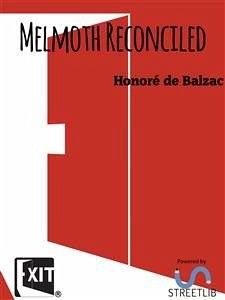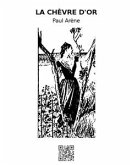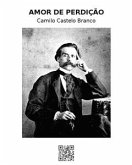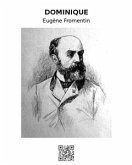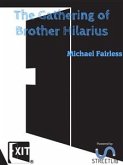MELMOTH RECONCILED
There is a special variety of human nature obtained in the Social Kingdom by a process analogous to that of the gardener's craft in the Vegetable Kingdom, to wit, by the forcing-house—a species of hybrid which can be raised neither from seed nor from slips. This product is known as the Cashier, an anthropomorphous growth, watered by religious doctrine, trained up in fear of the guillotine, pruned by vice, to flourish on a third floor with an estimable wife by his side and an uninteresting family. The number of cashiers in Paris must always be a problem for the physiologist. Has any one as yet been able to state correctly the terms of the proportion sum wherein the cashier figures as the unknown x? Where will you find the man who shall live with wealth, like a cat with a caged mouse? This man, for further qualification, shall be capable of sitting boxed in behind an iron grating for seven or eight hours a day during seven-eighths of the year, perched upon a cane-seated chair in a space as narrow as a lieutenant's cabin on board a man-of-war. Such a man must be able to defy anchylosis of the knee and thigh joints; he must have a soul above meanness, in order to live meanly; must lose all relish for money by dint of handling it. Demand this peculiar specimen of any creed, educational system, school, or institution you please, and select Paris, that city of fiery ordeals and branch establishment of hell, as the soil in which to plant the said cashier. So be it. Creeds, schools, institutions and moral systems, all human rules and regulations, great and small, will, one after another, present much the same face that an intimate friend turns upon you when you ask him to lend you a thousand francs. With a dolorous dropping of the jaw, they indicate the guillotine, much as your friend aforesaid will furnish you with the address of the money-lender, pointing you to one of the hundred gates by which a man comes to the last refuge of the destitute.
There is a special variety of human nature obtained in the Social Kingdom by a process analogous to that of the gardener's craft in the Vegetable Kingdom, to wit, by the forcing-house—a species of hybrid which can be raised neither from seed nor from slips. This product is known as the Cashier, an anthropomorphous growth, watered by religious doctrine, trained up in fear of the guillotine, pruned by vice, to flourish on a third floor with an estimable wife by his side and an uninteresting family. The number of cashiers in Paris must always be a problem for the physiologist. Has any one as yet been able to state correctly the terms of the proportion sum wherein the cashier figures as the unknown x? Where will you find the man who shall live with wealth, like a cat with a caged mouse? This man, for further qualification, shall be capable of sitting boxed in behind an iron grating for seven or eight hours a day during seven-eighths of the year, perched upon a cane-seated chair in a space as narrow as a lieutenant's cabin on board a man-of-war. Such a man must be able to defy anchylosis of the knee and thigh joints; he must have a soul above meanness, in order to live meanly; must lose all relish for money by dint of handling it. Demand this peculiar specimen of any creed, educational system, school, or institution you please, and select Paris, that city of fiery ordeals and branch establishment of hell, as the soil in which to plant the said cashier. So be it. Creeds, schools, institutions and moral systems, all human rules and regulations, great and small, will, one after another, present much the same face that an intimate friend turns upon you when you ask him to lend you a thousand francs. With a dolorous dropping of the jaw, they indicate the guillotine, much as your friend aforesaid will furnish you with the address of the money-lender, pointing you to one of the hundred gates by which a man comes to the last refuge of the destitute.

